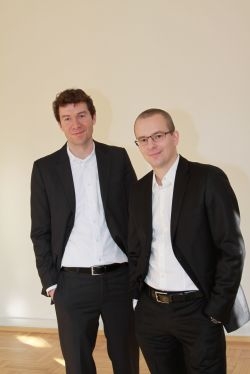Baselworld: ‘Meeting the watch family is as important as looking around for deals’ – Tim Stracke and Dirk Schwartz of Chrono24

Relaxnews: What do you think are the top three global trends in the watch market?
Tim: One trend is geographical — we have growing markets in China and the rest of Asia. The BRIC markets especially have enormous growth — Brazil, Russia, India and China. Today 10 percent of the watch searchers on our platform come from those countries; ten years ago those numbers were extremely small and our market was more Europe — Germany first — and America.
Other trends include buying watches as real asset diversification. There are brands and models that allow speculation as well as a stable progress of the value stream. Vintage watches such as old Rolex models have become a real piece of gold, as their prices have risen immensely.
The third trend is the development of independent watch brands that offer more individual models with a different approach than the classics. Brands such as DeWitt, F.P. Journe, Richard Mille, or the very interesting German brand Moritz Grossman from Glashuette, Moser et Cie. from Switzerland: they are rebels compared to the usual mass-producing manufacturers, and they interesting for investment as much as for collecting. »
R: How do customer expectations change between different countries/continents?
Dirk: We see that relatively new brands like Hublot (founded in 1980) do very well in countries like Brazil and India. They always have a spot in the Top 10 in these countries. In more conservative regions like Europe, the Top 10 is crowded by brands with a long history in watchmaking, such as Patek Philippe, Rolex, OMEGA, Jaeger-LeCoultre, Cartier, Audemars Piguet etc.
With regards to prices for watches, we see that Europeans look for the cheapest watches. Relatively, because in the first quarter of 2013 it is still an average of €6,081 per watch. In Africa it is the highest average with €7,594. The answer is easy because in African countries — most of them — there is no middle class, but a growing number of very wealthy people.
On Chrono24, the European demand for stainless steel watches is the highest compared to all other continents in Q1 2013. In Asia, the demand for stainless steel was 10 percent lower than in Europe. That shows that even materials experience different demands throughout the world — such as Arabian countries where gold is still fashionable and a sign for success, as much as in Asia.
T: In today’s world probably 80 percent of watch buyers use the internet in some way during the purchase decision, or they even consider buying completely online. A recent survey on Chrono24 shows that our users intend to purchase luxury watches with a total value of €10-15 billion within the next 12 months. This is 30 to 50 percent of the global luxury watch market.
Many independent brands use the internet to reach the buyers for a fraction of the costs that the big brands are spending on advertising.
Nowadays some established brands often consider their network of authorized dealers as a « burden » that prevents them from selling online.
We think that brands should be a lot more open in partnering with online companies to reach their target group. If not the independent brands will do so and outperform the big ones.
R: What are watch professionals looking out for at Baselworld?
D: Networking is the major issue in Basel, it’s where you meet all the important people in the industry. So meeting the watch family is as important as looking around for deals. And there are the booth appointments which are as important as parties or just the classic side talks in the halls.
We hope every year for more innovations — in 2013 using ceramic as a case material seems to be a trend. Even Omega started with models in that material that first Rado moved forward, and Hublot made it a huge trend with the Big Bang watches. We will see a lot of new booths, as around 1,000 of the 1,460 exhibitors have renewed their appearance completely.
jt/cm

